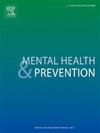Prevalence and determinants of depression and anxiety symptoms among adults: Evidence from the 2022-23 Mozambique demographic and health surveys
IF 2.4
Q2 Medicine
引用次数: 0
Abstract
Objective
Depressive and anxiety disorders significantly contribute to the global disease burden, affecting quality of life and increasing mortality. In Mozambique, the intersection of economic deprivation, cultural stigmatisation and the high suicide rate exacerbates depressive and anxiety disorders. This study aimed to examine the prevalence and determinants of depression and anxiety symptoms in Mozambique as there is limited literature on this subject.
Methods
A sample of 18,563 individuals was drawn from the 2022–23 Mozambique Demographic and Health Surveys data. Depression and anxiety symptoms were assessed using the Patient Health Questionnaire (PHQ-9) and Generalized Anxiety Disorder 7 (GAD-7) respectively. Descriptive statistics were used to obtain the prevalence of anxiety and depression symptoms and ordered logit regression models were used to examine the determinants of anxiety and depression symptoms.
Results
The findings revealed that 74.87 % of respondents exhibited minimal anxiety symptoms, while 78.07 % reported minimal depression symptoms. Results from the multivariable ordered-logit regression revealed women were more likely to experience severe anxiety (AOR = 2.26, 95 % CI: 1.95 - 2.63) and depression (AOR = 2.16, 95 % CI: 1.83 - 2.55) symptoms. However, rural residents, those in the richest wealth category, those who were employed, and those who had very good health status, had lower odds of experiencing severe anxiety and depression symptoms.
Conclusion
The study’s findings underscore the need for mental health interventions, particularly those addressing gender and socioeconomic disparities. Policies promoting gender equality, employment and good health may play a crucial role in mitigating mental health challenges in Mozambique.
成年人抑郁和焦虑症状的患病率和决定因素:来自2022-23莫桑比克人口和健康调查的证据
目的:抑郁症和焦虑症显著加重了全球疾病负担,影响生活质量并增加死亡率。在莫桑比克,经济剥夺、文化污名化和高自杀率的交叉作用加剧了抑郁症和焦虑症。本研究旨在检查莫桑比克抑郁和焦虑症状的患病率和决定因素,因为关于这一主题的文献有限。方法从2022-23年莫桑比克人口与健康调查数据中抽取18563人样本。抑郁和焦虑症状分别采用患者健康问卷(PHQ-9)和广泛性焦虑障碍7 (GAD-7)进行评估。使用描述性统计来获得焦虑和抑郁症状的患病率,并使用有序logit回归模型来检查焦虑和抑郁症状的决定因素。结果74.87%的被调查者表现出轻微焦虑症状,78.07%的被调查者表现出轻微抑郁症状。多变量有序logit回归结果显示,女性更有可能出现严重的焦虑(AOR = 2.26, 95% CI: 1.95 - 2.63)和抑郁(AOR = 2.16, 95% CI: 1.83 - 2.55)症状。然而,农村居民、最富有的人群、有工作的人群以及健康状况良好的人群出现严重焦虑和抑郁症状的几率较低。该研究的结果强调了心理健康干预的必要性,特别是那些解决性别和社会经济差异的干预。促进两性平等、就业和良好健康的政策可能在减轻莫桑比克心理健康挑战方面发挥关键作用。
本文章由计算机程序翻译,如有差异,请以英文原文为准。
求助全文
约1分钟内获得全文
求助全文
来源期刊

Mental Health and Prevention
Medicine-Psychiatry and Mental Health
CiteScore
2.10
自引率
0.00%
发文量
22
审稿时长
24 days
 求助内容:
求助内容: 应助结果提醒方式:
应助结果提醒方式:


